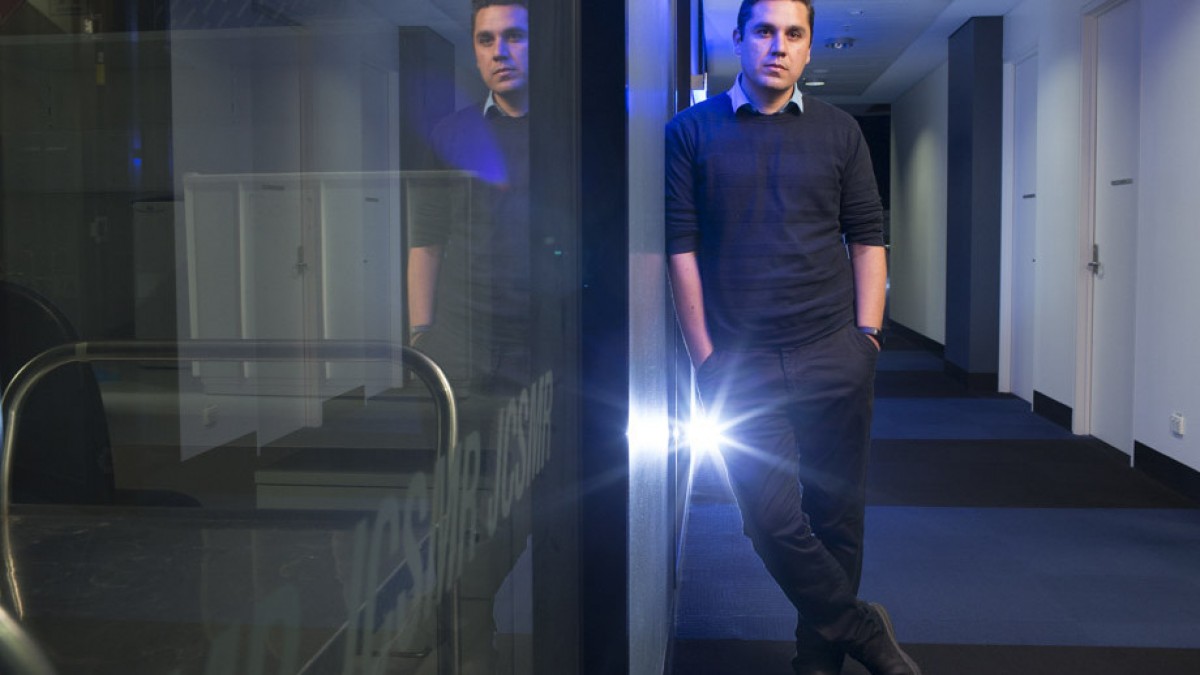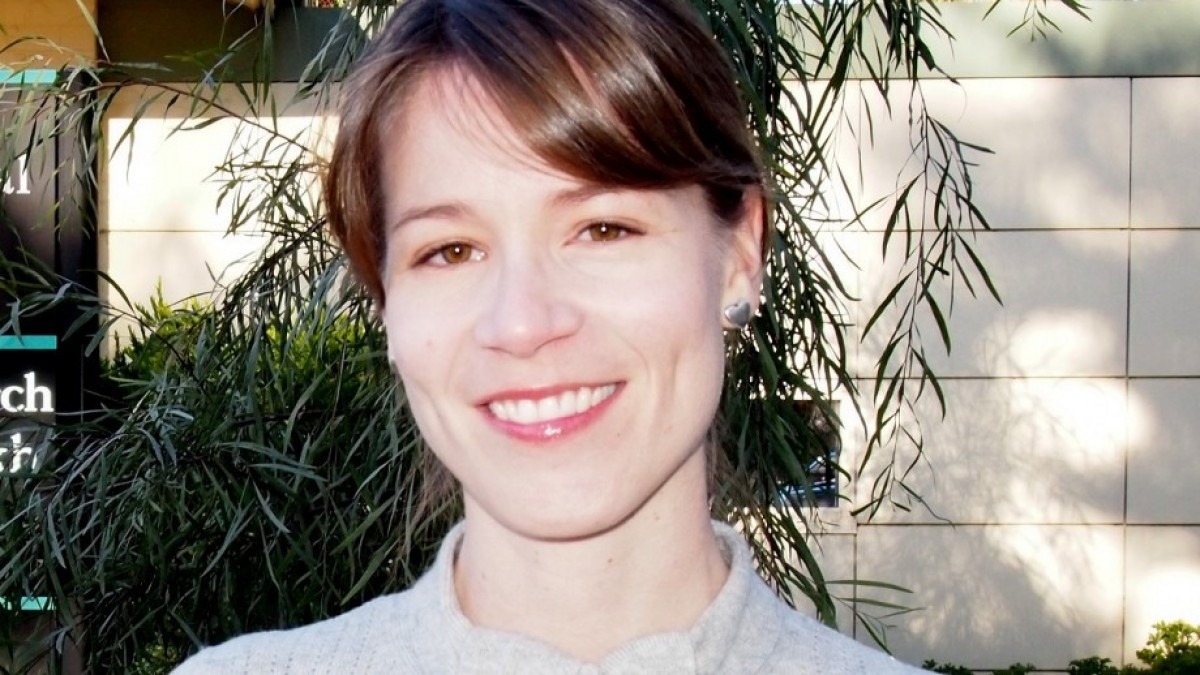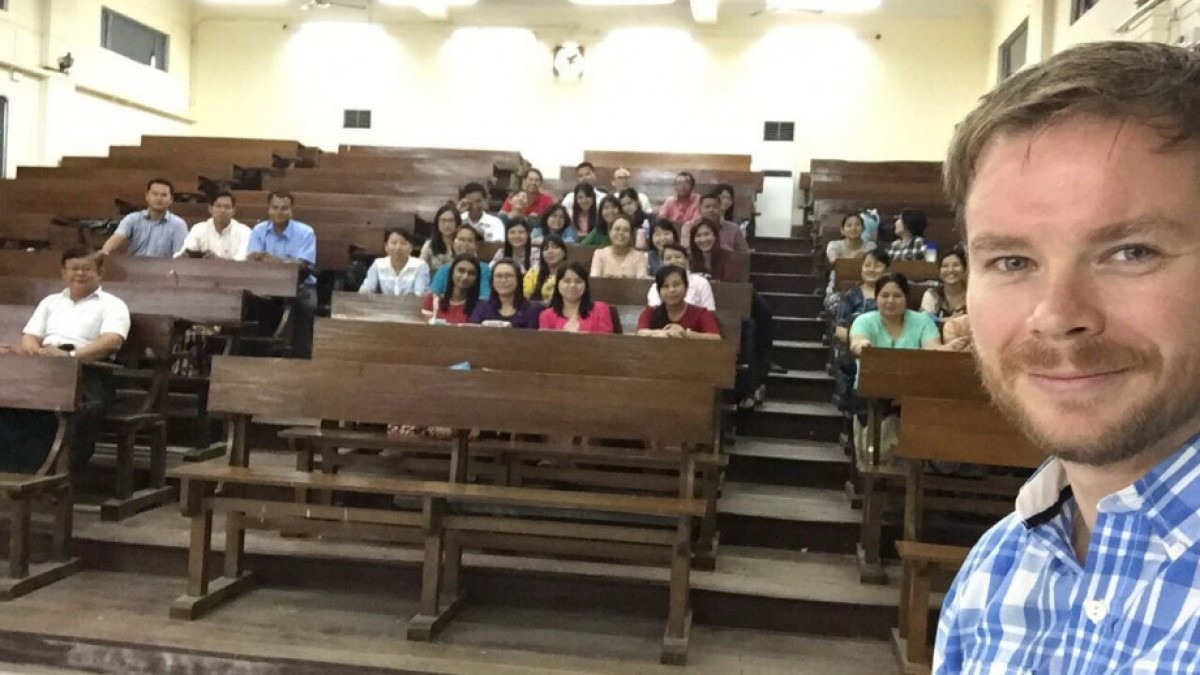ANU scientists honoured as Tall Poppies
Four ANU researchers have been honoured for their contributions to science in the 2019 ACT Young Tall Poppy awards.
Vision researcher Dr Riccardo Natoli, mental health researcher Dr Amelia Gulliver, chemical biologist Dr Lara Malins and nuclear physicist Dr AJ Mitchell were acknowledged as outstanding young scientific researchers and communicators.
Deputy Vice-Chancellor (Research and Innovation) Professor Keith Nugent congratulated the winners.
"Riccardo, Amelia, Lara and AJ are excellent early-career scientists and future leaders who are doing important research in their fields that is having an impact in Australia and around the world," he said.
"On behalf of the University, I applaud the great work they are doing both in their research and in the community to demonstrate the vital role of science."
Dr Natoli, from the John Curtin School of Medical Research, is developing a blood test to detect patients at risk of developing age-related macular degeneration (AMD). The test could potentially save millions of people from going blind.
By current projections, 1.7 million Australians will lose their vision due to AMD by 2030, largely caused by a combination of lack of treatments and early diagnostics. This novel blood test will help identify patients early, and help unlock new therapeutic options prior to patients developing irreversible vision loss.
Dr Natoli also coordinates the Young Visionaries program to promote science to school children and is also involved in public outreach through the media, Retina Australia, The Canberra Blind Society and his Clear Vision Research Initiative.
Dr Gulliver, from the Research School of Population Health, investigates the use of online programs to improve community mental health and reduce barriers to seeking help. She also conducts lived experience research, a field focused on partnering with people who have experience of mental health problems, and their carers.
Dr Gulliver participates in regular community engagement, speaking on radio and writing about her research in public forums, including for The Conversation.
Dr Malins, from the Research School of Chemistry, researches potential new ways to treat malaria, which kills a person every 90 seconds. Her team is designing biomolecules that can effectively target the deadly disease.
She also studies new antibiotics, with the aim of stopping the rapid rise of antibiotic resistance.
Dr Malins is passionate about science communication, including through Chemistry in the Pub and hosting students in her laboratory as part of internships.
Dr Mitchell, from the Research School of Physics, investigates the structure and radioactive decay properties at the heart of life's building blocks, atomic nuclei. He studies the fundamental forces that hold nuclei together, and aims to explore their potential for long-term energy-storage applications.
He engages the public with science through a range of activities in Australia and abroad, including running workshops to train high school science teachers in Timor Leste and physics training and research with the University of Yangon in Myanmar.
The Tall Poppy Campaign was created in 1998 by the Australian Institute of Policy and Science to recognise and celebrate Australian scientific excellence and to encourage young Australians to consider a career in science.
The Tall Poppies will spend a year sharing their knowledge with school students, teachers and the broader community through workshops, seminars and public lectures.




